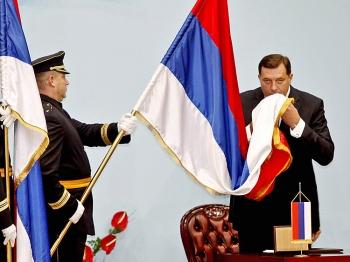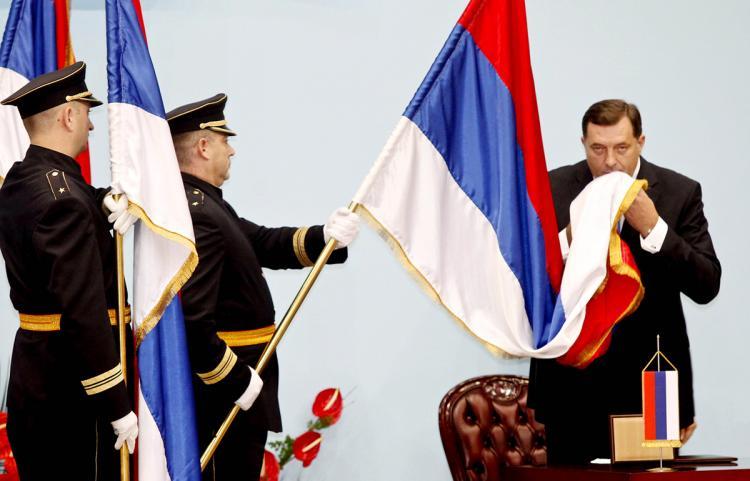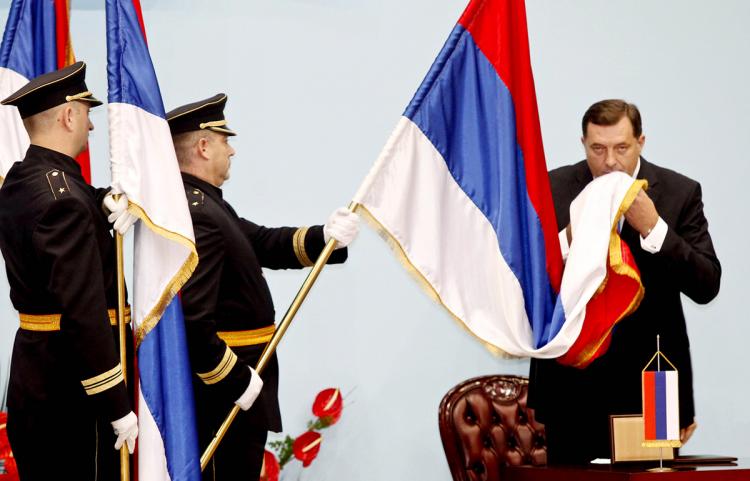Bosnian Crisis Averted for Time Being
Bosnian Serb leaders in the Republika Srpska region of Bosnia have canceled plans to hold a referendum challenging the legitimacy of country’s juridical system.

President of the Republika Srpska, Milorad Dodik, kisses the Bosnian Serb flag at his inauguration ceremony in November 2010. A referendum planned by Dodik that could further see the country split, was called off after international intervention. Milan Radulovic/AFP/Getty Images
|Updated:





